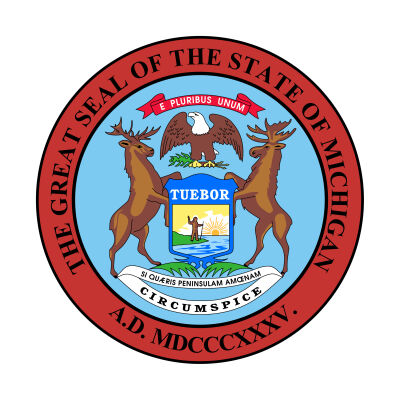METRO DETROIT — Governor Gretchen Whitmer has issued a call for a special election to fill the Michigan House of Representatives seats vacated by newly elected Warren Mayor Lori M. Stone and Westland Mayor Kevin Coleman, who represented District 13 and District 25, respectively.
In a letter to Secretary of State Jocelyn Benson on Nov. 22, the governor cited the Michigan Constitution and Michigan election law to support her call for a special primary election on Jan. 30, 2024, and a special election on April 16, 2024.
“The Michigan Legislature had one of the most productive sessions in Michigan history thanks to Michiganders who elected leaders, like state representatives Coleman and Stone, to get things done on the issues that make a real difference in people’s lives,” said Whitmer in a press release. “As we look ahead to 2024, these special elections will ensure that Michiganders in the 13th and 25th districts have representation in Lansing working for them as soon as possible. I look forward to working with the next representatives from these districts when voters elect them in the new year.”
The filing deadline for interested candidates was 4 p.m. Monday, Nov. 27, which resulted in six candidates vying for the seat left by Stone in District 13. Three are Democrats: Lamar Lemmons, Suzanne Ostosh and Mai Xiong. Three are Republicans: Brandon Cumbee, Curtiss Ostosh and Ronald Singer.
Candidates seeking to represent District 25 are Democrats Peter Herzberg, Melandie Yvonne Hines, Shannon Rochon, Andrea Rutkowski, and Layla Taha, and Republican Josh Powell.
Republican state Reps. Ann Bollin of Brighton Township and Mike Harris of Waterford categorized the Democratic governor’s call for a special election as “rushed, not prioritizing the people,” and as not following the same precedent when Republican seats are vacated.
“This move should raise some eyebrows, especially given the precedent of scheduling elections differently based on what way these districts swing along party lines. When three Republican House seats were vacant in late 2021, the governor scheduled those special elections for March and May of 2022. Why the sudden rush to fill the latest vacancies?” Bollin stated in a written release.
Harris expressed the additional toll it would take on the community.
“Far too often, politicians in Lansing disregard local viewpoints and undermine community needs,” Harris said in a written release. “Scheduling special elections on irregular dates will cost local governments in Metro Detroit, and the chaos of overlapping voting periods will heap burdens on local clerks, the area residents who work the polls, and voters.”
Harris added in the release, “The governor announced the special elections the day before the long Thanksgiving weekend, giving potential candidates only until Monday to file their paperwork.”
Candidates winning the special elections for the Michigan House of Representatives seats in District 13 and District 25 will serve a partial term of office ending January 25, 2025.
 Publication select ▼
Publication select ▼






















